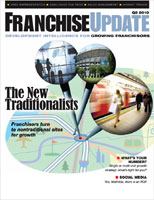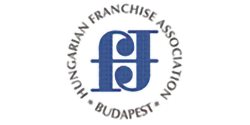Hard Act To Follow?: Why Some Franchisees don't Follow the System
One of the significant consequences of the Internet's development is that we can gather opinions from a diverse group with minimal effort. I did so recently through a posting on the American Bar Association Forum on Franchising listserv. It read in part:
"Why do some franchisees not follow the franchise system--Too often I hear the question raised as to why a franchisee will pay for a franchise and either immediately or along the way stop following the franchisor's requirements and suggestions?"
Within days, I had received more than a dozen responses with opinions on this question, which has puzzled me for years. Many of the opinions were far from surprising, especially from those I know have a predilection to be franchisor- or franchisee-biased. A few were very evenhanded, but it nevertheless appeared to me that the responders, not surprisingly, weighted the prevalence of each cause to their own experiences.
So what were the different opinions? Let's divide the world into two parts. (For a copy of the responses, contact me at the email address below.)
1. It's the franchisee's fault!
From the franchisor's perspective, the most common rationale for noncompliant behavior goes back to the character and inner workings of the franchisee. It may be inappropriate to describe this so succinctly, but the franchisor advocates pointed to bad franchisee choices--almost an acceptance of the principle of predetermination. Several observers remarked that candidates are often sold franchises when, regrettably, they do not fit the mold of a good franchisee. (I, of course, always wonder what that "mold" is!)
Some franchise consultants have developed profile charts to identify the traits of a successful or unsuccessful franchisee, and use the resulting framework to analyze candidates for specific franchise systems. This, of course, is the methodological approach based on the old saying that the best predictor of future performance is past performance. Is that really true? And can we scientifically take this stance? I often contemplate how random life may be, and whether it is random luck, in large measure, that determines one's career path or level of success.
How much data, for instance, do we have on those who do not fit the franchisee profile? Did they join other franchise systems, and how did they fare in those franchise systems. Unfortunately, I doubt anyone has assembled this data. Personally, using my Anecdata® method of assessments, I would hypothesize that army captains probably make excellent franchisees. They have been trained to follow orders, but they also hold positions that require decision-making abilities. My point is simply that the jury may still be out on the validity of these stereotyping methodologies. ("Anecdata" is a term I thought I had coined, but later discovered I did not. It refers to information that is based on more than one anecdote, but does not purport to be a conclusion resulting from extensive and disciplined research that has statistical validity.)
One of the more novel theories presented by responders to my listserv question may be culturally based. In the United States, I would observe, we are mostly passive lambs. We have our entrepreneurs, of course, but a large portion of our population is trained to follow the rules, and in fact, do so without flinching. We pay our taxes, even though we recognize that the probability of an IRS audit may be slim. When we go into a department store, we have historically paid the price posted; we are not experienced at negotiating.
But as the country has evolved into its current melting pot of cultures (of course, we have always been a melting pot), we find that many of our residents come from cultures that have different rules for conducting business. In some instances, those rules say there are no rules, other than that self-interest comes first. Thus the prospect pool for new franchisees is often composed of people who by their upbringing do not follow "our" rules. It would be interesting to do a comparative study of how this observation holds up in their home countries where this is the norm. Do franchisors have the same problem we in the U.S. do, and if so, to what extent when it comes to franchisee behavior?
2. It's the franchisor's fault!
I haven't taken the time to try to quantify the responses I received from lawyers I know to be franchisee-friendly. If nothing else, my perception is that they were more numerous and more adamant about this subject than their colleagues on the other side. When one considers how few lawyers are pure franchisee advocates, the number of franchisee-friendly responses could be viewed as overwhelming.
Their most common answer: franchisees go astray because the franchisor's business model doesn't work. Various roads that led to this conclusion. One franchisee advocate pointed to a system where the technology failed: it did not allow the franchisee to deliver to customers the service the franchise system promoted. Several advocates pointed to inflexibility: the system would not allow for variations to fit the local market, thus franchisees took matters into their own hands.
Others pointed out that franchisees often felt they knew more than the franchisor--they were in the trenches, so to speak, while the franchisors sat in their castle of dreams. This was not only true at the corporate level, but also described the franchisees' attitude toward field consultants, many of whom had never operated a franchise in the system, nor for that matter had any practical experience in the world of business. As one franchisee told me many years ago, "Why should I respect my field consultant, who blindly carries the torch for his boss without an understanding of reality? He will be gone in two years. I will still be here dealing with strategies that were not well thought out."
Finally, and probably most importantly, in many cases the business model simply did not provide a profitable opportunity to franchisees. The financial results from operations, even when franchisees operated according to Hoyle, did not meet the franchisees' economic needs, much less expectations. Thus they would forage for ways to improve their bottom line, such as new products; alternatives to approved vendors resulting in more economical sourcing of goods and services; and non-sanctioned techniques for marketing the brand, to name only a few.
Overall, regardless of which side you believe, it all seems to boil down to three things: people, product, and money. If you begin with the right people, if you have a viable product, and if the product leads to a profitable enterprise for the franchisees, they will be less likely to stray from the system. And if you add two more ingredients--good communication and a "we care" attitude--you have a recipe for success.
Rupert Barkoff is a partner in Kilpatrick Stockton LLP's Atlanta office, where he chairs the firm's Franchise Practice Group. He is a former Chair of the American Bar Association's Forum on Franchising and Co-Editor-in-Chief of Fundamentals of Franchising. He can be reached at rbarkoff@kilpatrickstockton.com.
Share this Feature
Recommended Reading:
Comments:
comments powered by DisqusFRANCHISE TOPICS
- Multi-Unit Franchising
- Get Started in Franchising
- Growth
- Operations
- Open New Units
- Leadership
- Marketing
- Technology
- Legal
- Awards
- Rankings
- Trends
- Featured Franchise Stories
FEATURED IN

Franchise Update Magazine: Issue 2, 2010






 The franchise listed above are not related to or endorsed by Franchise Update or Franchise Update Media Group. We are not engaged in, supporting, or endorsing any specific franchise, business opportunity, company or individual. No statement in this site is to be construed as a recommendation. We encourage prospective franchise buyers to perform extensive due diligence when considering a franchise opportunity.
The franchise listed above are not related to or endorsed by Franchise Update or Franchise Update Media Group. We are not engaged in, supporting, or endorsing any specific franchise, business opportunity, company or individual. No statement in this site is to be construed as a recommendation. We encourage prospective franchise buyers to perform extensive due diligence when considering a franchise opportunity.